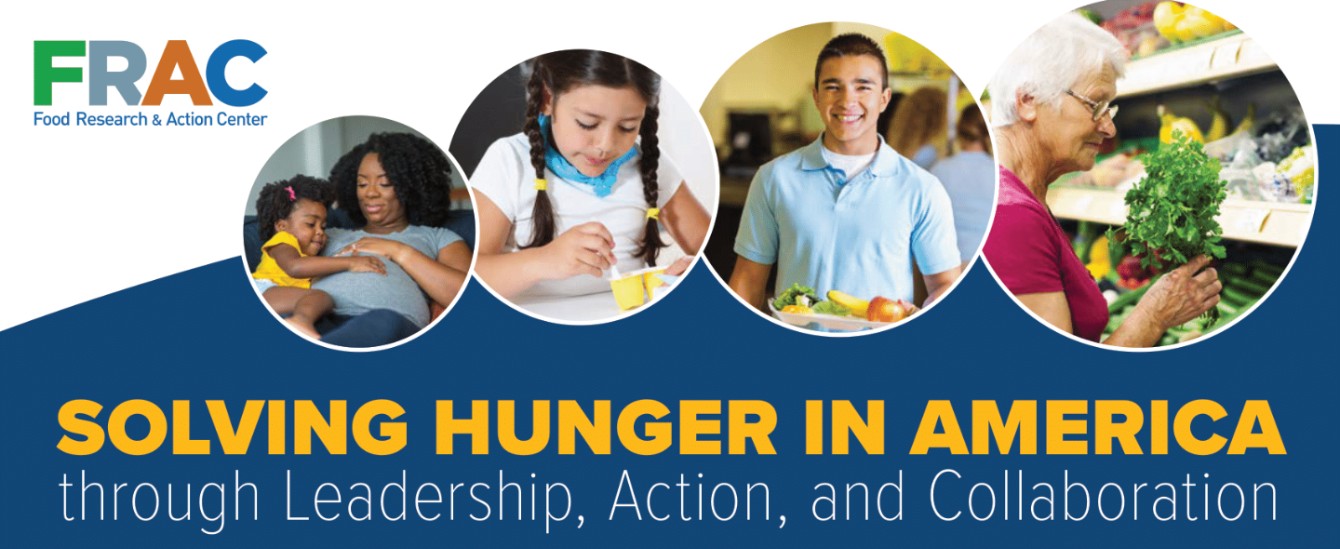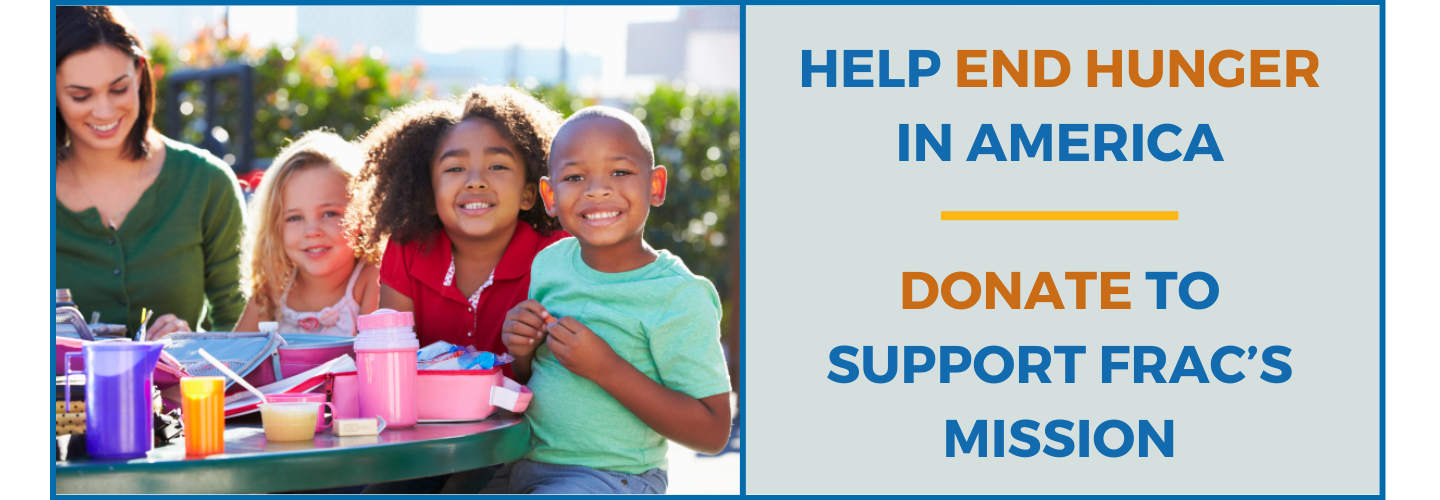Take Action Today
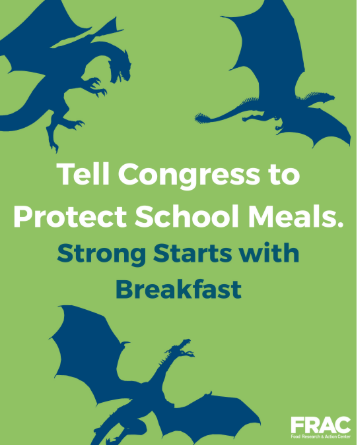
National School Breakfast Week
Join FRAC in celebrating National School Breakfast Week, a weeklong celebration from March 2–6 of the federal School Breakfast Program. Together, we can make sure every child has the nutritious meal they need to start their school day ready to learn.

Congress Must Act Quickly to Restore Harmful SNAP Cuts
Congress must take immediate action to repeal the devastating cuts and harmful impacts on the Supplemental Nutrition Assistance Program (SNAP) that were included in the budget reconciliation law, H.R. 1. Anti-hunger advocates are urging Members of Congress to cosponsor and support the Restoring Food Security for American Families and Farmers Act of 2025, which repeals the cuts to SNAP.
Advocacy Needed to Reinstate USDA’s Food Security Report
Use the FRAC Action Network to urge your Members of Congress to reach out to the U.S. Department of Agriculture and demand it reinstate the Economic Research Service Household Food Security report, the gold standard for measuring hunger in America. Your message matters. Hunger will not end by ignoring it. Congress needs to act now.
Urge Your House Representative to Cosponsor the MODERN WIC Act
Ask your Representative to join the growing list of cosponsors for the More Options to Develop and Enhance Remote Nutrition (MODERN) WIC Act (H.R. 1464).
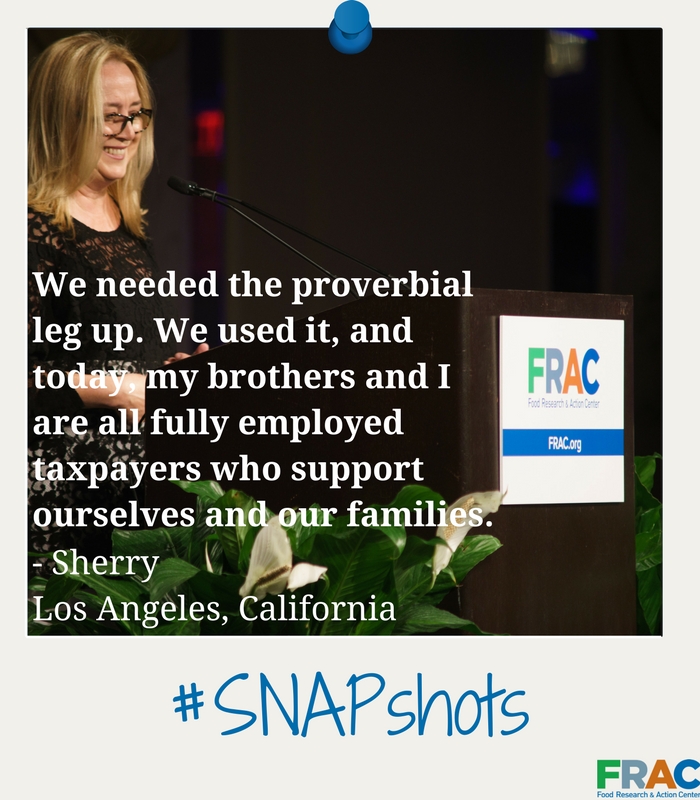
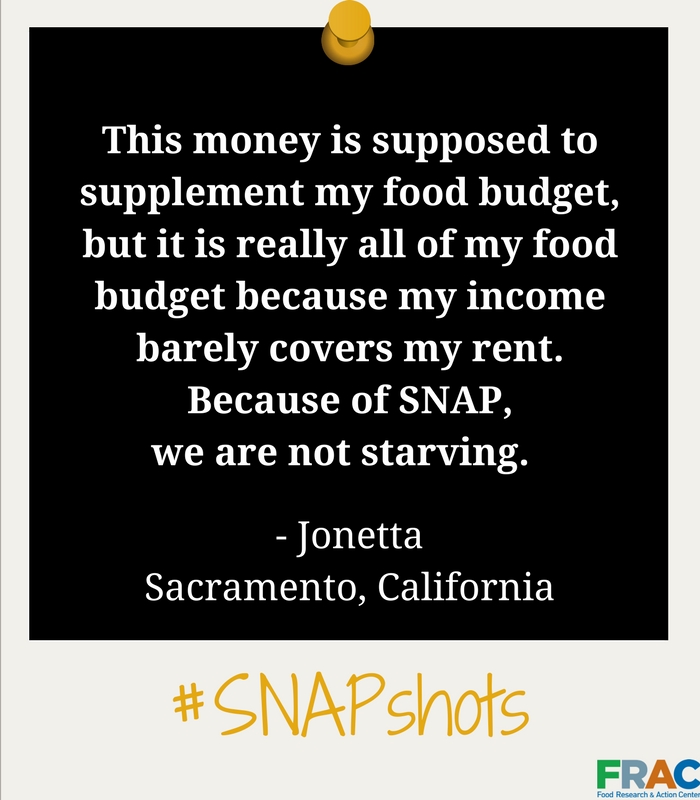
Resources

Legislative Action Center
Take Action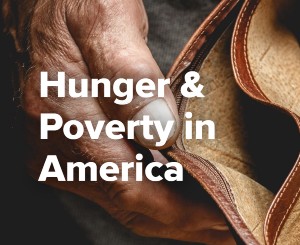
Hunger & Poverty in America
Explore the Data
Summer EBT Resource Center
Learn more
Healthy School Meals for All
Learn More
National SNAP Fact Sheet
Learn More
State-by-State SNAP Fact Sheets
Learn More
State-by-State CEP Fact Sheets by Congressional District
Learn More
News
FRAC Chat
The U.S. Department of Agriculture’s (USDA) Food and Nutrition Service (FNS) released a proposed rule on September 25, 2025, to update staple food-stocking standards for retailers participating in the Supplemental Nutrition Assistance Program (SNAP). While improving access to nutritious food is an important goal, the proposed rule raises serious concerns about weakening food access for SNAP participants.
March 2–6 marks National School Breakfast Week — a time to celebrate the power of the federal School Breakfast Program nationwide and to recognize the vital role it plays in helping students learn, grow, and thrive.
Every great hero’s journey starts with a moment of preparation — a chance to gather strength, sharpen focus, and step boldly into the day ahead. For millions of students across the country, that moment is school breakfast.
Recent Publications & Data
See More Resources- Graphic
Summer EBT is returning in 2026! Get the word out by using FRAC’s new poster, which explains eligibility for the program, benefits, and how to apply.
Download the poster - Fact Sheet
Congress must take immediate action to ensure the Farm Bill — or any legislation — reverses the devastating cuts and harmful impacts on the Supplemental Nutrition Assistance
Read the fact sheet
Program (SNAP) that were included in the budget reconciliation law, H.R. 1. Protecting SNAP is protecting America’s health, economy, and future. - Report
The budget reconciliation law (H.R. 1) represents the most significant retrenchment of the Supplemental Nutrition Assistance Program (SNAP) in decades. FRAC’s City Playbook is designed to help municipal leaders understand the scope of what’s coming, anticipate challenges, and prepare coordinated responses with state, federal, and community partners.
Read the playbook - Best Practice
The federal Summer EBT Program helps to ensure that more children from households with low incomes have access to adequate nutrition during the summer months. Learn how schools and school nutrition staff can play a critical part in ensuring the success of the program, along with outreach best practices from schools across the country.
Read the fact sheet




